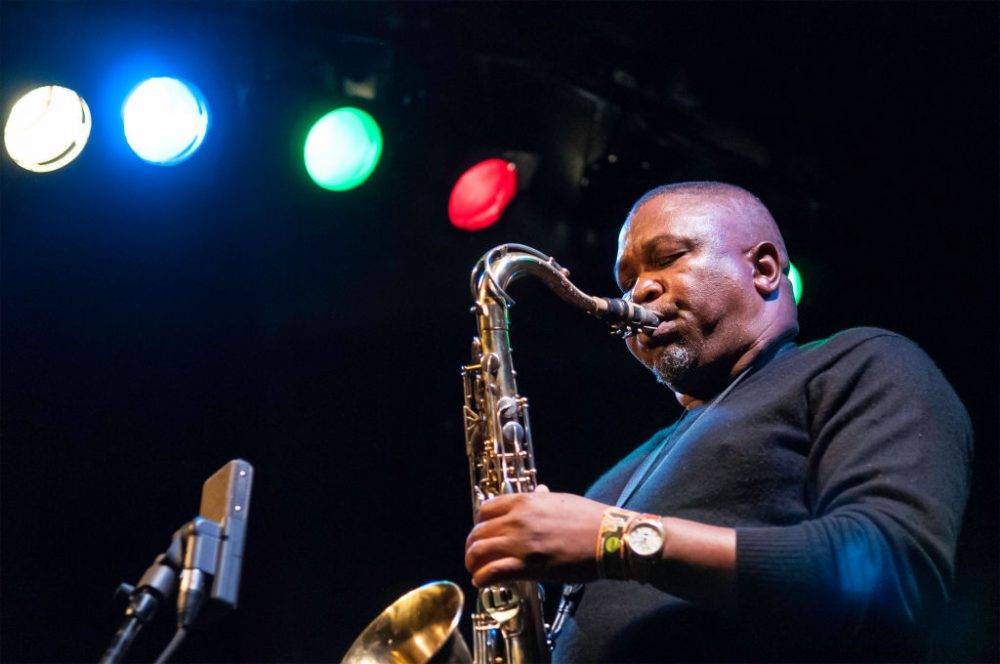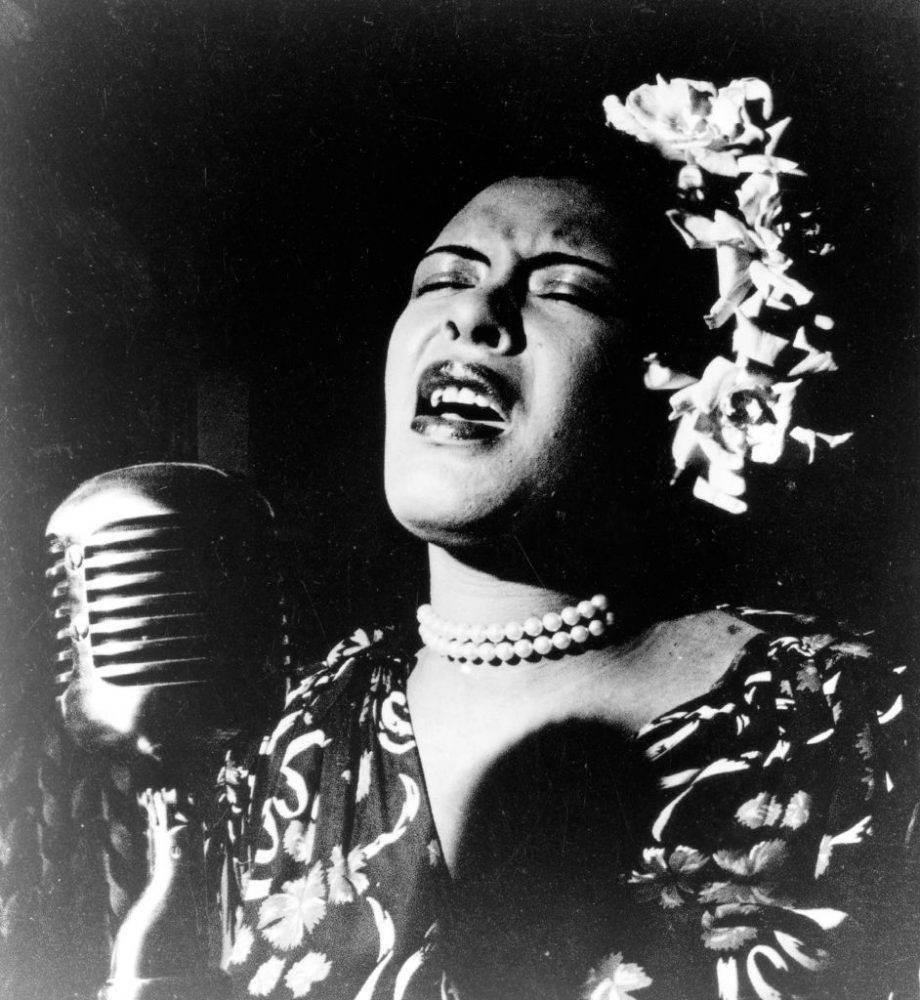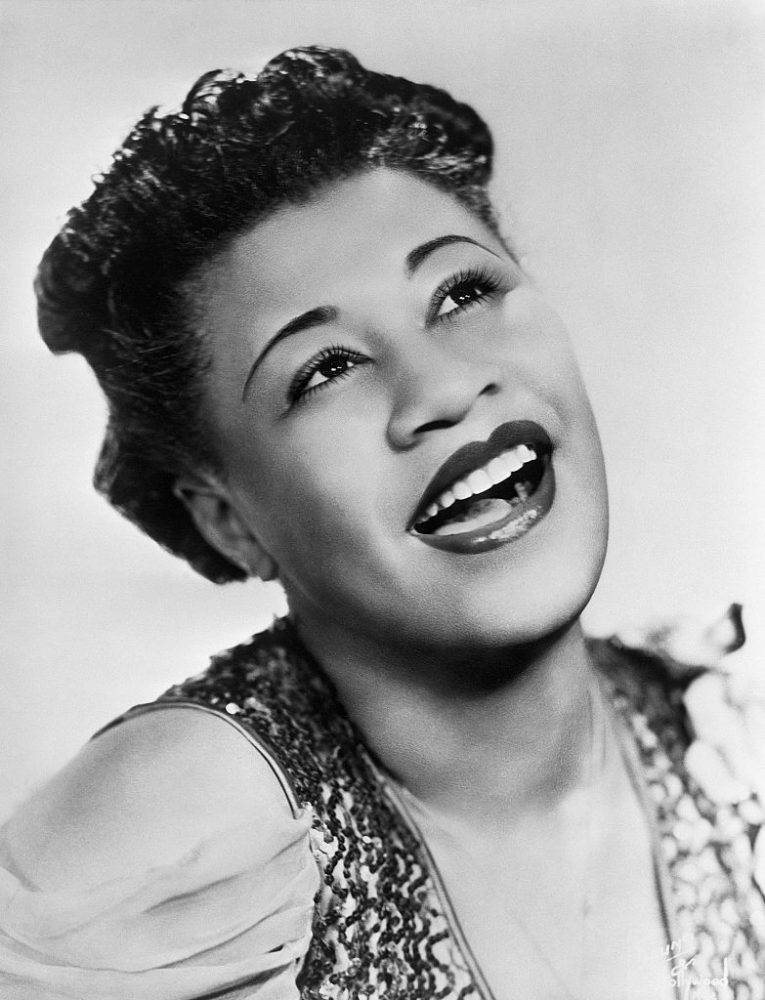Billie Holiday (Michael Ochs Archives/Getty Images)
My father and I were almost always at war about music. But now, more than 25 years after he died, I feel we are at peace.
I was a child of the 1960s, so music in our home was a communal experience — it was played on a “hi-fi” in the lounge, which meant the whole household had to listen to whatever the occupant of the turntable was listening to.
No iPhones or headphones offering insulated satisfaction, not even when travelling in the car — there, it was something called an eight-track, a clunky cassette tape that more often than not was spewing out Duane Eddy (a country bumpkin rock ’n roll guitarist) or Henry Mancini (best known for the Pink Panther theme tune, but also responsible for reams of bland, hotel-lobby music).
Every now and then, usually after my mother had had one of her occasional vodka and orange juices, she and Father would spin some of the music from their own youth: jazz icons such as Fats Waller, Duke Ellington, Glenn Miller and (for my mum) some Nat King Cole. It was vaguely listenable, all swingy and brassy, but my ears struggled.
In my teen years, my own musical taste evolved from the Rolling Stones, to punk, to reggae and (somehow), eventually, even to “soft” jazz musos such as George Benson. Briefly, my father and I found each other over Benson’s Weekend in LA live album which included a gorgeous 10-minute rendition of On Broadway.
He was surprised. Suddenly we could listen to music together. He loved Benson and when I built on it and introduced him to Fleetwood Mac’s classic jazz-rock album Rumours, we suddenly found a real connection. In 1980, I bought him Fleetwood Mac’s Live album for Christmas. In 1981, it was a George Benson “greatest hits” compilation.
We were on a musical roll.
 South African sax player Zim Ngqawana. (Photo by Jack Vartoogian/Getty Images)
South African sax player Zim Ngqawana. (Photo by Jack Vartoogian/Getty Images)
And then we drifted apart. I started working far from home (East London is far further than it seems from Sasolburg) and discovered the struggle, activist journalism and left-wing politics. Hanging out with a more cosmopolitan group of friends, I became immersed in the seminal socially conscious music of the global left: Donny Hathaway’s The Ghetto, War’s The World is a Ghetto; hearing why Bill Withers couldn’t write left-handed. And more and more and more Bob Marley.
When I chose to return home and be with my family every now and then, I realised I had built another family — a musical and political family — that was far removed from tapping our feet to Fleetwood Mac’s Rhiannon or Benson’s On Broadway.
And with it went an entire collection of musical influences that made it increasingly difficult to listen to music with my father.
Neil Diamond’s Hot August Night was the deal-breaker. Released in 1972, it was a live double album that my father rediscovered in the early 1980s. And he played the shit out of it. I must have heard Sweet Caroline, complete with happy-clappy singalongs, at least a thousand times.
Every time my father put it on the turntable, I had to leave the room. After deep drunken nights immersed in the challenging soul and spirit of Donny Hathaway, the sound of Neil Diamond made me nauseous.
Those years were difficult. We argued about politics, about life, about journalism, about pretty much everything. But nothing like the arguments about music.
We were divergent again.
Fast forward five years or so, though, and I discovered real jazz. The real songs of my father.
In my early 30s, while working at City Press, I was co-opted into a pretty haphazard Sunday league football team called Happy Fighters. Happy Fighters, we were told by our convenor, was the name of one of the best football teams on Robben Island and our kit was (somewhat pretentiously) black, green and gold.
We played in an informal, vaguely political league against teams that had romantic names such as Gramsci on the Summer Question (GOTSQ) with fellow lefties who were also destined never to have a career in professional football: Ivor Powell, Tyrone August, Anton Harber and John Perlman.
Happy Fighters’ “home ground”, in Mofolo, Soweto, was the most cockeyed pitch I’ve ever seen. Before each Sunday morning home game, we’d gather at our captain’s nearby home — I only ever knew him as Sakkie — to get in the zone for whatever exhaustion lay ahead of our unfit, desk-bound and hungover bodies.
Two memories stand out: the pungent, biltong-like smell of weed as most of the team primed themselves for some serious pain and the background music — always a vinyl album, of course, and always on a stereo “gramophone” — some of the most spiritual sounds I’d ever heard.
Once, dodging the dagga smoke (I was yet to be inducted into the wonders of weed), I went over to look at what we were listening to. It was a spiritual, soulful, saxophone-filled track called Weary Blues from an album called Back To Back by Duke Ellington and Johnny Hodges.
Now, I don’t know if it was the second-hand smoke or the music but the memory of that driving, rising, anthemic track stuck with me as we headed off to Mofolo to get tortured. And I was determined to get more.
 Singer Billie Holiday. (Photo by Universal History Archive/Getty Images)
Singer Billie Holiday. (Photo by Universal History Archive/Getty Images)
I found the album at an old record store called Kohinoor in downtown Joburg a few days later and did a double take. I recognised the cover — my father, in between his Neil Diamond albums and Duane Eddie eight-tracks, had this one.
The next time my father and I met was seminal. I asked him to pull it out and we listened to Weary Blues two, maybe three times, in silence. Then, because it was vinyl (you had to get up to change the track) we turned the album over and lived through the rest of this profound music a few more beautiful times.
It was a game-changer.
From then on, every meeting, every family lunch, every out-to-dinner, had to include a discussion about the journey that Weary Blues had started me on. It was a jazz trip: Johnny Hodges led me to Ben Webster. Ben Webster led me to Gerry Mulligan. Gerry Mulligan led me to Illinois Jacquet.
At home, my partner was on a similar journey and we travelled the jazz highway together — at home (with my dad) and at home (with her).
It was luscious. Discovering jazz at that age (in my mid- and then late 30s) and being able to circle back to my father on every new discovery was a wondrous thing. Every time I went home, or we met, there would be time for a chat about music. Have you heard this? Do you know this one?
The journey expanded. We met new artists along the way, each time comparing notes on our discoveries.
The pianists: Duke Ellington, Gene Harris, Bill Evans, Art Tatum, Oscar Peterson, Thelonious Monk.
The singers: Ella Fitzgerald, Sarah Vaughan, Billie Holiday.
 A young Ella Fitzgerald singing in the 1940’s.
A young Ella Fitzgerald singing in the 1940’s.
The horn players: Miles Davis, Clark Terry, Sonny Rollins, Ben Webster, Lester Young, John Coltrane. And the king, Johnny Motherfucken Hodges.
My father died before iTunes, Spotify and the joy of not having to get off the couch to change the music. Sadly, apart from not being able to share the new tech, we never got to share my growing interest in the wonders of South African jazz.
I would love to be able to sit with him, sharing the sheer spiritual delight — the same deep, moving semblance we bonded over from Ellington and Hodges — that is Nduduzo Makhathini, Bheki Mseleku, Zim Ngqawana, Herbie Tsoaeli or Paul Hanmer.
Regrets, I have a few.
My father’s jazz legacy, happily, lives on not just in the music that flows through my wife’s and my home every day, but in our children: daughters, whose middle names are Ella (as in Fitzgerald) and Billie (as in Holiday).
If they’d been boys, there’s no doubt whose middle names they would have carried: Duke, as in Ellington. And Johnny, as in Hodges.
Songs, and grandchildren, for my father.